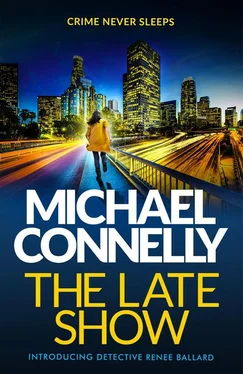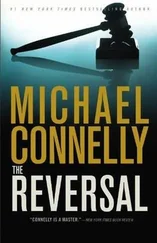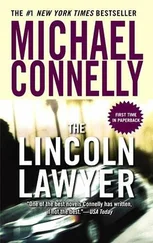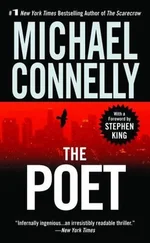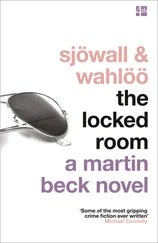Once situated with a cup of coffee at the counter behind the corner window, Ballard pulled her phone and called Jerry Castor on his direct newsroom line.
“This is Renée Ballard.”
“Oh! Uh, hi, I’m glad you called. I wasn’t — there’s still time for me to get your comments into the story.”
“I’m not giving you any comments. This conversation is off the record.”
“Well, I was hoping to get some reaction to what I’m saying in my story, which is—”
“I’m not giving reaction, I’m not giving comments, and I don’t care what you say in your story. I’m hanging up now unless you agree that this conversation is off the record.”
There was a long silence.
“Uh, okay, we’re off the record,” Castor finally said. “For now, at least. I just don’t understand why you wouldn’t want to get your side of it into the story.”
“Are you recording this?” Ballard asked.
“No, I’m not recording.”
“Well, just so you know, I am. I’ve been recording since the start of the call. Are you okay with that?”
“I guess so. But I don’t see why you—”
“You’ll understand in a few minutes. So that is a yes on recording?”
“Uh, yes.”
“Okay, good. Mr. Castor, I’m calling to tell you that your information is wrong. That you are being manipulated by your LAPD sources to put out a story that is not only wrong but designed to inflict harm upon me and others.”
“Harm? How is that?”
“If you tell a lie in your paper, that harms me. You need to go back to your sources and take a look at their motives and then ask them for the truth.”
“Are you saying you didn’t stab Thomas Trent multiple times? That your statement wasn’t contradicted by another victim’s statement?”
That second part was new information and it would be helpful to Ballard.
“I’m saying you have been lied to and I have this conversation on tape,” Ballard said. “If you proceed with that story and its lies and out-of-context statements, then this recording with its direct warning will go to your editor and other media outlets so it will become clear to the community and in your workplace what kind of reporter you are and what kind of newspaper the Times is. Good night, Mr. Castor.”
“Wait!” Castor cried.
Ballard disconnected and waited, keeping her eyes on the Spring Street employee entrance of the Times.
She was working off of a fact, a supposition, and an assumption. The fact was that it was against the law and the policy of the LAPD to publicly disclose the details of a personnel investigation. Ballard had killed a man that morning in the line of duty. That was news and the department was duty bound to inform the public. That came in the form of a press release all parties had agreed upon. Ballard and Feltzer had written the three-paragraph statement while they had been in the command post that morning. But Ballard had not agreed to releasing any more details of the killing or the subsequent investigation. Castor obviously had details that went beyond the press release. It meant he had a source who was feeding him those details in violation of the law and department policy.
Ballard’s supposition was that Castor’s source would be smart and cagey and would be sure not to place himself in a position where he could be compromised. He would certainly not reveal the details of a personnel investigation in a phone call that could be recorded or heard by others without his knowledge. Whatever motivated a source to spill to the newspaper, the actual leaking would be clandestine and not take place on the phone, in the newspaper office, or at the LAPD.
That led to the assumption. Ballard had just thrown a fastball at Castor and she guessed that he would run, figuratively, in a panic to his source in order to salvage the story. He needed to tell his source what Ballard had just said. If there were ground rules about not talking on a phone, then Castor would be walking out of the Times Building at any moment to head to a meeting with his source.
Ballard’s only worry was that the reporter’s secret spot for meeting his source might be the very coffee shop where she was now sitting. It would be perfectly reasonable for a reporter from the Times Building and an LAPD employee from the PAB to cross paths in a coffee shop equidistant from both their work locations. Words and documents could be exchanged in the line to order, at the waiting counter after ordering, or at the sugar and cream stand.
Ballard visually tracked one man for half a block after he stepped through the Times door and headed north and away from her. After finally deciding he was a bogey, her eyes returned to the building’s doors just in time to see the real Jerry Castor emerge. He turned south, passing by the coffee shop from the other side of Spring Street. Ballard dumped the coffee she had bought but hadn’t even tasted. She stepped out onto the sidewalk and headed south, tracking Castor from the other side of the street.
There was a time when following someone on foot at night in downtown L.A. would have been impossible to pull off because of the scarcity of pedestrians after the nine-to-five workday ended. But the district had begun to thrive in recent years, with many young professionals deciding to avoid the angst of killer traffic and live in the area where they worked. Restaurants and nightlife soon followed. On this night near eight p.m. Ballard had no problem keeping other pedestrians between herself and Castor, though it did not appear that the reporter was thinking about the possibility of a tail. He never looked behind himself once. He never cleverly glanced into the reflection of a shop’s plate-glass window. He walked swiftly and with purpose, like a man on a mission, or a deadline.
Castor led Ballard south for four blocks, until he got to the corner of 5th Street, then took a right and disappeared through an open door. Ballard wondered if it was a move designed to lose a tail, but as she caught up, she saw a neon sign that announced the business as the last bookstore.
Ballard entered cautiously and found a giant bookstore in a space that appeared to have formerly been the grand lobby of a bank. There were rows of freestanding bookshelves angled between Corinthian columns rising two stories to an ornate coffered ceiling. On one wall hung a sculpture of books forming a wave. Balconies fronting small art- and used-record shops offered a view down onto the main floor, which was crowded with customers. Ballard had no idea of the place’s existence and the excitement of the find almost made her forget her quarry.
Using a set of shelves dedicated to the classics as a partial blind, Ballard scanned the lower level of the bookstore, looking for Castor. The reporter was nowhere to be seen, and it was impossible to cover every corner of the space because of the shelves, columns, and other obstacles to her vision.
Ballard saw a man with a name tag pinned to his shirt walking toward the checkout counter near the door.
“Excuse me,” she said. “How do I get upstairs?”
“I’ll show you real quick,” the man said.
He walked Ballard over to an alcove that had been hidden from her sight and pointed to a set of stairs. She thanked him and quickly started up.
The upper-level balconies afforded Ballard a fuller view of the bookstore below. There were several reading alcoves created by shelf stands positioned at right angles and complete with old leather chairs or couches in the privacy spots. It was the perfect place for a clandestine meeting.
Ballard scanned the whole place twice before finally spotting Castor in an alcove almost directly below her. He was sitting on the edge of a couch, leaning forward and in animated but quiet conversation with another man. It took a moment for the other man to turn his face so that Ballard could clearly see it.
Читать дальше
